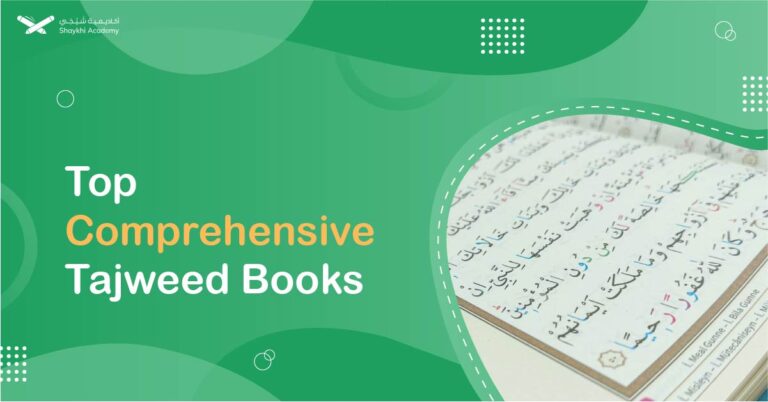How To Study During Ramadan? Studying during Ramadan, especially while fasting, requires careful planning and consideration of your physical and mental well-being. While it’s possible to study during fasting, it’s essential to adjust your study routine to accommodate the challenges posed by changes in energy levels and concentration.
Engage in physical activity and mental exercises to boost alertness, and prioritize hydration and nutritious meals during non-fasting hours to maintain energy levels. Create a conducive study environment, take regular breaks for prayer and reflection, and utilize effective study techniques like summarizing key points and using flashcards.
By adopting these strategies, you can effectively study during Ramadan while balancing your academic and spiritual responsibilities.
Is It Possible To Study During Fasting?
Studying during fasting is indeed possible, but it requires careful planning and consideration of your physical and mental capabilities during this time.
Fasting, particularly during Ramadan, can affect your energy levels, concentration, and cognitive function due to changes in eating and sleeping patterns.
However, with proper strategies and adjustments, you can effectively study while fasting. Here are some tips to help you study during fasting:
How To Study During Ramadan?
Studying during Ramadan can be a rewarding and fulfilling experience, allowing individuals to balance their academic pursuits with spiritual growth and devotion. Here are some tips on how to study effectively during Ramadan:
Engage in Physical Activity: Incorporate light physical exercises or sports activities into your daily routine, especially during the first 30 minutes of your day. Activities like walking, jogging, or cycling can boost your energy levels and improve your concentration.
1. Stimulate Your Mind:
Engage in mental activities throughout the day to enhance alertness and cognitive function. Solve mathematical problems or play interactive video games that require mental engagement and interaction.
2. Take Warm Showers:
Take warm showers to stimulate blood circulation and provide you with energy and vitality. A warm shower can help you feel refreshed and revitalized, especially during fasting hours.
3. Stay Hydrated:
Drink plenty of water throughout the day, especially before fasting hours begin, to prevent dehydration that can affect your energy and focus. Consume water during suhoor to hydrate your body adequately for the day ahead.
4. Practice Deep Breathing:
Practice deep breathing exercises to oxygenate your blood and brain, leading to increased energy and alertness. Take deep breaths from the abdomen and exhale slowly to promote relaxation and mental clarity.
5. Eat Healthy Foods:
Avoid overindulging in fatty or fried foods during suhoor, as they can make you feel sluggish. Opt for nutritious foods that support brain health, such as avocados, dark chocolate, eggs, nuts, bananas, and almonds, to improve concentration and retention during study sessions.
6. Take Frequent Breaks:
Divide your study time into manageable intervals and take frequent breaks throughout the day to avoid mental fatigue. However, avoid studying during times of hunger, as it can impact your cognitive function.
7. Use Summaries and Flashcards:
Use summaries and flashcards for quick review sessions during fasting hours when long academic readings may be challenging. Summarize key points and concepts after iftar to facilitate retention and focus during study sessions.
8. Study with Peers:
Study with a group of friends or classmates, either online or in person, to discuss study materials, ask questions, and support each other in finding solutions. Group study sessions can motivate you to study and enhance your understanding of the subject matter.
9. Morning Review Sessions:
Take advantage of the morning hours for memorization and review sessions when your mind is fresh and alert. Break down study sessions into shorter intervals and review material in small increments.
10. Stay Refreshed:
Wash your face with cold water or take brief breaks to freshen up and revitalize your mind. Performing ablutions for prayers can also rejuvenate your energy and focus throughout the day.
11. Diversify Your Subjects:
Vary your study subjects throughout the day to prevent monotony and maintain mental alertness. Switching between subjects can help you avoid wasting time and increase your sense of accomplishment.
12. Designate a Study Space:
Create a conducive study environment away from your bed or other places that induce drowsiness. Allocate specific times for study and rest, adhering to a precise schedule that balances both activities effectively.
13. Plan Your Schedule:
Plan your study schedule around your fasting and prayer times. Allocate specific times for studying, breaks, meals, and prayers to ensure a balanced routine that accommodates both your academic and spiritual needs.
14. Set Realistic Goals:
Set realistic goals for your study sessions based on your energy levels and concentration during fasting hours. Break down larger tasks into smaller, manageable segments to maintain productivity and avoid overwhelm.
15. Prioritize Important Tasks:
Prioritize your studies based on deadlines, exam dates, or the importance of the subject matter. Focus on completing high-priority tasks during times when you feel most alert and focused, such as after suhoor (pre-dawn meal) or in the early afternoon.
16. Stay Hydrated and Nourished:
Stay hydrated and nourished during non-fasting hours to maintain energy levels and cognitive function. Consume nutrient-rich foods and hydrate adequately during iftar (evening meal) and suhoor to support your physical and mental well-being.
17. Take Short Breaks:
Take short breaks during study sessions to rest, refresh, and rejuvenate your mind and body. Use break times to perform ablutions (wudu), engage in brief prayers or dhikr (remembrance of Allah), or simply relax and unwind.
18. Utilize Productivity Techniques:
Employ productivity techniques such as the Pomodoro Technique (working in short bursts with breaks in between), time blocking (allocating specific time slots for different tasks), or task prioritization to maximize your study efficiency.
19. Incorporate Quranic Recitation:
Dedicate time for Quranic recitation and reflection during Ramadan, integrating it into your study routine. Incorporating the recitation of Quranic verses or listening to Quranic lectures can provide spiritual nourishment and mental clarity.
20. Stay Organized:
Stay organized by keeping track of your study materials, assignments, and deadlines. Use planners, calendars, or digital apps to manage your schedule and track your progress throughout Ramadan.

Does Ramadan Affect Studying?
Yes, Ramadan can have both positive and potentially challenging effects on studying, as outlined in the provided Arabic text.
1. Increased Energy:
Fasting during Ramadan leads to a shift in the body’s energy sources, utilizing ketones instead of glucose for fuel. This can provide sustained energy levels for studying, especially during periods of metabolic adaptation.
2. Enhanced Brain Health:
The metabolic shift during fasting, including the increased use of ketones, may enhance brain function and cognitive abilities. This can lead to improved focus, concentration, and productivity, benefiting studying efforts.
3. Cognitive and Psychological Benefits:
Fasting can reduce the strain on the body from digestion, leading to increased mental clarity and psychological well-being. This can contribute to better focus, calmness, and overall cognitive function during studying sessions.
4. Improved Cognition and Mood:
Studies suggest that fasting may enhance brain function, leading to increased intelligence and cognitive abilities. This can result in improved problem-solving skills, decision-making abilities, and overall mood during studying.
While Ramadan can offer cognitive and psychological benefits for studying, individuals may also experience challenges such as fatigue, changes in sleep patterns, or decreased energy levels, especially during fasting hours.
It’s essential for individuals to prioritize self-care, maintain a balanced lifestyle, and adjust their study routines to accommodate their physical and spiritual needs during Ramadan.
Best Time to Study During Ramadan:
Creating a study schedule during Ramadan is crucial to maximize productivity and avoid wasting time. Some important tips when preparing a study schedule include:
- Choose high-concentration times that work best for you, which typically occur after Suhoor (pre-dawn meal) and Fajr (dawn prayer). If you wake up for Suhoor or early in the morning, or after Iftar (breaking fast) by two hours.
- Avoid mental fatigue late in the day and after Iftar. Opt for activities suitable for your mind, such as solving problems or listening to material, then revisiting it later.
- Rest for an hour before Iftar to prepare yourself for studying two hours after Iftar without feeling exhausted.
- Maintain your sleep schedule, from midnight until dawn or from after Fajr until morning, according to your daily schedule and tasks.
Here’s a suggested study schedule during Ramadan:
| Time | Activity |
| Before Fajr until midday | Sleep |
| Afternoon | Wake up |
| 1-6 PM | Study and review |
| 6-8 PM | Iftar (breaking fast) and rest |
| Between dinner and Suhoor | Study and review, with a longer period dedicated to studying |
How To Revise During Ramadan For Exam?
Revising during Ramadan requires careful planning and consideration of the unique challenges posed by fasting. Here are some tips to help you effectively revise and review your studies during this holy month:
1. Create a Realistic Schedule:
Develop a revision schedule that takes into account your fasting hours, energy levels, and religious obligations during Ramadan. Allocate specific time slots for revision sessions, focusing on subjects or topics that require the most attention.
2. Utilize Non-Fasting Hours:
Plan your revision sessions during non-fasting hours, such as after suhoor (pre-dawn meal) or in the early evening before iftar (breaking fast). Use these periods when you have more energy and mental clarity to concentrate on your studies.
3. Prioritize Key Topics:
Identify the most important and challenging topics or subjects that require revision and focus your efforts on mastering them. Allocate more time to areas of weakness while ensuring you cover all essential content within your study schedule.
4. Break Down Revision Sessions:
Divide your revision sessions into shorter, manageable segments to avoid mental fatigue and maximize retention. Focus on one topic or concept at a time, using techniques like spaced repetition and active recall to reinforce learning.
5. Use Effective Study Techniques:
Experiment with different study methods and techniques to find what works best for you during fasting hours. Incorporate active learning strategies such as summarizing key points, creating flashcards, and practicing past exam questions to enhance understanding and retention.
How Do You Balance Ramadan And Exams?
Balancing Ramadan and exams requires careful planning and self-discipline. Start by creating a study schedule that accommodates fasting and non-fasting hours, allocating specific times for revision during the day. Set realistic goals and prioritize essential topics to study, considering the potential impact of fasting on your energy levels and concentration.
During fasting hours, adapt your study approach by using alternative methods like audio recordings or group study sessions to stay engaged. Stay hydrated and nourished during non-fasting hours to maintain energy levels, and prioritize self-care to avoid burnout. Seek support from teachers or professors to navigate exams effectively while observing Ramadan faithfully. With proper planning and self-care, you can balance your religious commitments with academic success during Ramadan.
How To Focus While Fasting Ramadan?
To maintain focus while fasting during Ramadan, prioritize adequate rest, hydration, and nutrition during non-fasting hours. Plan your study sessions during times when you feel most alert, such as after breaking your fast or in the early morning.
Limit distractions by creating a quiet, conducive study environment, and use techniques like the Pomodoro method to break up study sessions into manageable chunks.
Engage in light physical activity and mental exercises to boost alertness and concentration. Additionally, incorporate regular breaks for prayer, reflection, and relaxation to recharge your mind and body. By adopting these strategies, you can enhance your focus and productivity while fasting during Ramadan.
Unlock the Path to Quranic Mastery with Shaykhi Academy!
Are you seeking the finest Quranic education right from the comfort of your home? Look no further! Shaykhi Academy stands out as a premier online Quran learning platform, dedicated to providing exemplary education to both children and adults.
Why Choose Shaykhi Academy?
- Connect with highly qualified native tutors.
- Flexible scheduling to suit your busy lifestyle.
- Affordable classes tailored for all levels.
- Accessible from anywhere around the globe.
Discover Our Range of Courses:
- Arabic Noorani Qaida: Lay a solid foundation for Quranic studies.
- Online Quran Classes for Kids: Engaging lessons for lifelong learning.
- Tajweed Rules for Kids: Learn to recite with confidence.
- Quran Hifz for Kids: Step-by-step guidance to memorize the Quran.
- Quran for Adults: Introduce yourself to Quran reading and Tajweed rules.
- Online Arabic Courses: Master the language of the Quran.
- Islamic Studies: A wide range of topics related to Islam, including theology, law, Quranic studies, Hadith.
Don’t Miss Out on Your Chance to Excel!
Whether you’re a beginner or seeking advanced knowledge, Shaykhi Academy can guide you! Book your free trial now and make Ramadan 2024 your Quranic turning point!
Conclusion:
In conclusion, while fasting during Ramadan may present challenges for studying, it’s entirely possible to maintain focus and productivity with careful planning and adjustment of study routines.
By prioritizing self-care, incorporating effective study techniques, and balancing your energy levels, you can successfully navigate the demands of fasting while pursuing your academic goals.
Remember to stay hydrated, nourished, and mindful of your physical and mental well-being throughout the holy month, allowing you to make the most of your study sessions while observing Ramadan faithfully.




















